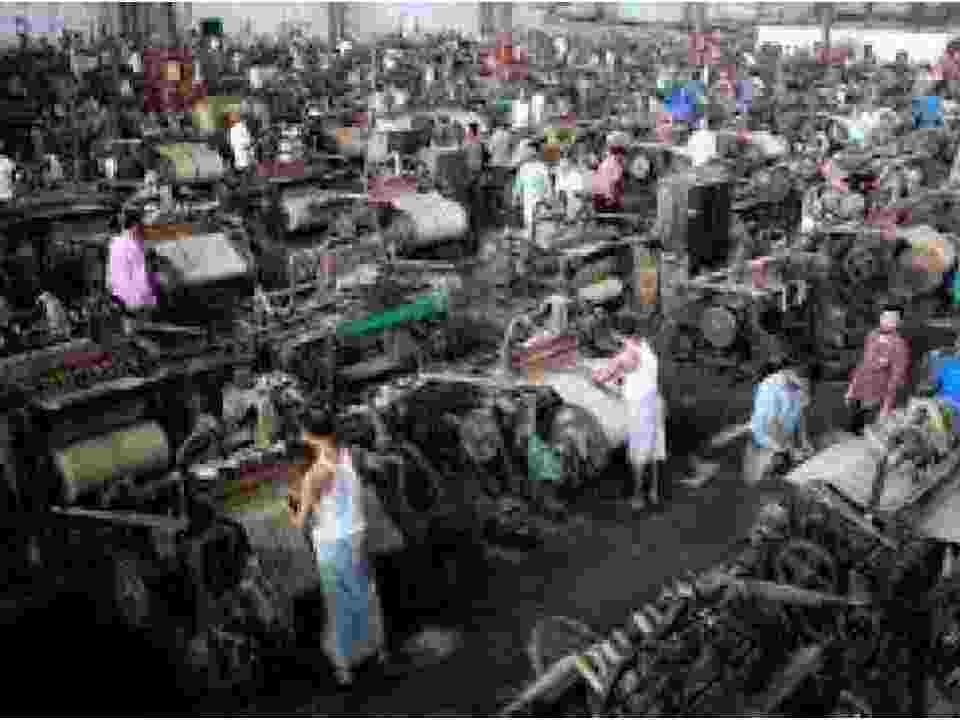Description
India’s government has recently highlighted the creation of 17 crore jobs over the past decade. Yet, achieving the ambitious goal of a $36 trillion economy by 2047 hinges on bridging the significant productivity gap between formal and informal workers. This divide limits income growth and hampers economic inclusion, signaling the need for a comprehensive structural transformation of the labour market.
Productivity Gap Between Formal And Informal Workers
Formal sector employees generate an average Gross Value Added (GVA) of approximately Rupees 12 lakh per worker annually, while informal sector workers produce just Rupees 1.5 lakh per year. This eightfold disparity underscores the productivity gap. Nearly 91% of India’s workforce remains informal, with only 9% in formal employment. The low productivity of informal workers suppresses average incomes and conceals the true potential of India’s labour force.
Wage Disparity And Labour Market Issues
Economic principles suggest that wages should reflect productivity, yet India’s large informal workforce and widespread underemployment distort this link. Excess labour supply keeps wages low even as productivity rises in the formal sector. Agriculture alone employs 42% of workers but contributes just 18% to GDP, highlighting disguised unemployment and negligible marginal productivity. This imbalance prevents wage growth from keeping pace with overall economic output.
Formalisation As A Policy Imperative
Increasing formal employment is key to boosting productivity and aligning wages with output. Formal jobs provide social security, stable contracts, and skill development opportunities. Initiatives like e-Shram, ESIC, and EPFO should aim for universal coverage. Small enterprises and gig economy platforms can be incentivised with simplified regulations and tax benefits to encourage formal contracts. Introducing a Formalisation Index could track progress and highlight areas needing reform.
Addressing Skills Gap
Only 4.7% of India’s workforce is formally skilled, compared to over 50% in developed countries. This skills deficit limits movement into higher productivity roles. Expanding institutions such as the National Skill Development Corporation and Industrial Training Institutes is crucial. Training curricula must evolve to include digital, AI, and green technology skills, while strong collaboration between industry and academia can ensure workforce readiness.
Linking Wages To Productivity
Performance-based wage systems can better connect compensation with productivity and efficiency. Organised sectors like electronics and textiles can implement such models, while public programmes like MGNREGS could incorporate performance-linked bonuses without compromising worker rights. Digital tools including AI and IoT can help objectively measure productivity, and platforms like ASEEM and DigiLocker can maintain integrated worker profiles to track wages, skills, and career development.
Harnessing India Demographic Dividend
India’s young workforce is a strategic advantage, but without formalisation and productivity growth, this demographic dividend may become a liability. Economic expansion must translate into wage growth to reduce inequality and prevent social unrest. Structural reforms that enhance productivity and ensure fair wage distribution are essential for inclusive growth. Failure to implement these measures could leave India trapped in a low-income equilibrium dominated by a small formal sector.
Welcome to Notopedia.com, your free learning platform that caters to the diverse needs of students and aspirants across a spectrum of entrance exams and educational endeavors. Whether you're preparing for highly anticipated exams like CAT, NEET, JEE Main, or bank job vacancies, our platform offers a wealth of resources to guide you towards success. Stay up-to-date with the latest exam dates, announcements, and results for various government recruitment exams, including SSC CGL, CHSL, NDA, and UPSC. Explore comprehensive study materials, sample papers, and exam patterns to hone your skills and boost your confidence. From important dates like CBSE Class 10 and 12 date sheets to exam-specific information like JEE Main application form date, we cover it all. Notopedia.com is your go-to source for everything from admissions and admit cards to scholarships and college information. Whether you're aiming for a career in defense, government, banking, or higher education, our free learning platform equips you with the knowledge and resources you need to excel. Join us in your educational journey and unlock a world of opportunities, guidance, and comprehensive support.
For more Updates and Information - Visit Notopedia's Bulletin Board
For Latest Sarkari Jobs - Visit Notopedia's Sarkari Jobs Section
For access to more than 20,000 Colleges - Visit Notopedia's College Section
For School Studies and Exams Preparation across 14 Boards - Visit Notopedia's School Section
For Comprehensive Preparation of Sarkari Job Exams - Visit Notopedia's Sarkari Exams Section










